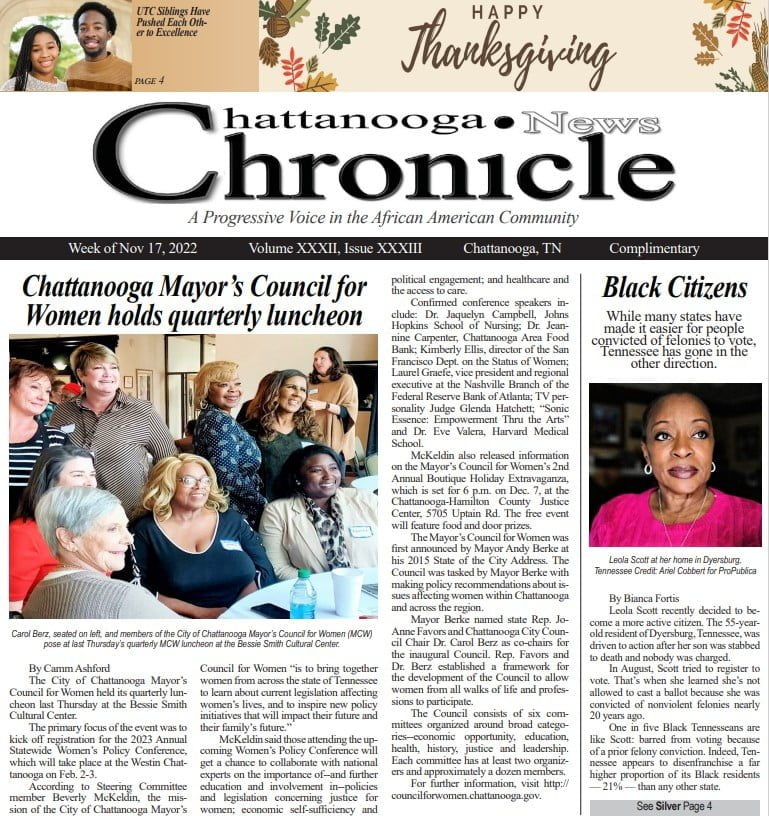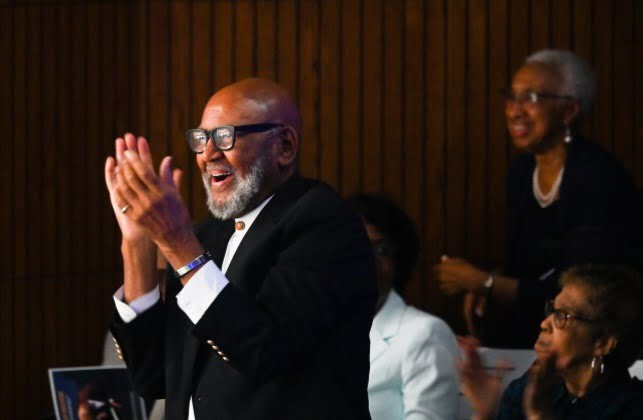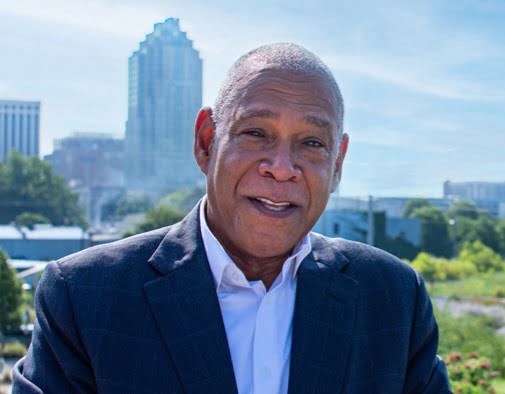While many states have made it easier for people convicted of felonies to vote, Tennessee has gone in the other direction.
By Bianca Fortis
Leola Scott recently decided to become a more active citizen. The 55-year-old resident of Dyersburg, Tennessee, was driven to action after her son was stabbed to death and nobody was charged.
In August, Scott tried to register to vote. That’s when she learned she’s not allowed to cast a ballot because she was convicted of nonviolent felonies nearly 20 years ago.
One in five Black Tennesseans are like Scott: barred from voting because of a prior felony conviction. Indeed, Tennessee appears to disenfranchise a far higher proportion of its Black residents — 21% — than any other state.
The figure comes from a new analysis by the nonprofit advocacy group The Sentencing Project, which found that Mississippi ranks a distant second, just under 16% of its Black voting-eligible population. Tennessee also has the highest rate of disenfranchisement among its Latino community — just over 8%.
While states around the country have moved toward giving people convicted of felonies a chance to vote again, Tennessee has gone in the other direction. Over the past two decades, the state has made it more difficult for residents to get their right to vote back. In particular, lawmakers have added requirements that residents first pay any court costs and restitution and that they be current on child support.
Tennessee is now the only state in the country that requires those convicted of felonies be up to date on child support payments before they can vote again.
The state makes little data available about who has lost the right to vote and why. Residents who may qualify to vote again first have to navigate a confusing, opaque bureaucracy.
Scott says she paid off her court costs years ago. But when she brought a voting rights restoration form to the county clerk to affirm that she had paid, the clerk told her she still had an outstanding balance of $2,390.
“It was like the air was knocked out of me,” she said. “I did everything that I was supposed to do. When I got in trouble, I owned it. I paid my debt to society. I took pride in paying off all that.”
Scott does not have receipts to verify her payments because she made them so long ago, she said. And there is no pathway for her to fight what she believes is a clerical error.
She is now a plaintiff in a lawsuit filed by the Tennessee NAACP challenging the state’s voting rights restoration process. In court documents, the state denied allegations that the restoration process is inaccessible.
Overall, according to The Sentencing Project, about 470,000 residents of Tennessee are barred from voting. Roughly 80% have already completed their sentence but are disenfranchised because they have a permanently disqualifying conviction — such as murder or rape — or because they owe court costs or child support or have gotten lost in the system trying to get their vote back.
Over the past two years, about 2,000 Tennesseans have successfully appealed to have their voting rights restored.
Those convicted after 1981 must get a Certification of Restoration of Voting Rights form signed by a probation or parole officer or another incarcerating authority for each conviction. The form then goes to a court clerk, who certifies that the person owes no court costs. Then it is returned to the local election commission, which then sends it to the State Election Commission for final approval. (Rules on voting restoration were revised multiple times, so older convictions are subject to different rules.)
Republican Cameron Sexton, speaker of the Tennessee House of Representatives, said people convicted of felonies should have to pay court costs and child support before voting.
“If someone’s not paying or behind on their child support payment, that’s an issue,” he told ProPublica. “That’s an issue for that child, that’s an issue for that family, not having the things that they agreed to in court to help them for that child.”
When asked about Tennessee being the only state to require that child support payments be up to date before voting rights can be restored, Sexton said, “Maybe Tennessee is doing it correctly and the others are not.”
A 2019 report from the Tennessee Advisory Committee to the U.S. Commission on Civil Rights found that the requirements for repayment have been especially burdensome to women, the poor and communities of color. The report also noted that Tennessee has increasingly levied court charges “as a means for funding the State’s courts and criminal justice system.”
Georgia previously required payment of restitution and fines in order to restore voting rights. But in 2020, the office of Georgia’s secretary of state clarified that anyone who has completed their sentence may vote, even if they owe court costs or other debts that were not incurred as part of their sentence.
Disenfranchisement does not solely impact the lives of individual voters — it can have consequences for elections, too. This is particularly true for multiracial communities in Tennessee, according to Sekou Franklin, a political science professor at Middle Tennessee State University. He pointed to county-level races that have been decided by a few dozen votes.
“There are real votes that are lost that can shape elections,” Franklin said.
Black Tennesseans, even those who were not enslaved, have been disenfranchised for centuries. In 1835, the new state constitution took away the right to vote from free Black men, who had been able to vote under the previous constitution. It also stipulated that anyone convicted of an “infamous” crime — a list that included robbery, bigamy and horse stealing — would lose their voting rights, often permanently.
The civil rights laws of the 1960s opened up voting again for Tennesseans. But soon lawmakers began adding back in provisions that disenfranchised people convicted of felonies. Legislators updated the statute every few years, adding to the list of crimes that permanently disqualify someone from voting. The result is a convoluted list of eligibility criteria for voting rights restoration that depend on what a person was convicted of and when the conviction took place.
The reality of disenfranchisement in Tennessee received some national attention recently around the case of a Memphis woman, Pamela Moses. Three years ago, she got her probation officer’s signoff to vote again. The next day, the Tennessee Department of Correction asserted the officer had made an error. Prosecutors then charged Moses with lying on an election document. She was convicted and sentenced to six years in prison, but a judge later threw out the conviction.
Tennessee lawmakers from both parties have tried, unsuccessfully, to make it easier for residents to get their vote back.
In 2019, two Republican lawmakers sponsored a bill that would have automatically restored voting rights to people upon completion of their sentence. It was supported by a bipartisan coalition of civil rights advocates, including the libertarian group Americans for Prosperity and the Tennessee American Civil Liberties Union. But it never gained traction among legislators.
In 2021, two Democrats sponsored another bill that would have granted automatic vote restoration, but that bill also died. The sponsors said that the Republican supermajority in Tennessee’s legislature simply doesn’t have an appetite to take it on.
“We said we wanted to do criminal justice reform, but all we’ve done is really nibbled around the edges,” state Sen. Brenda Gilmore told ProPublica, referring to a bill she co-sponsored with a fellow Democrat.
Dawn Harrington, the founder of Free Hearts, an organization that supports formerly incarcerated women, also advocated for the 2021 bill. Reforms Falter in Police Department Under Scrutiny for Killings
On a trip to New York City in 2008, Harrington carried a gun that was licensed in Tennessee. Because New York does not recognize permits from other states, she was convicted of a gun possession charge.
After serving a yearlong sentence on Rikers Island, she returned to Tennessee and set out to have her rights restored. Tennessee requires the incarcerating agency to sign the rights restoration form, but Harrington struggled to find someone in New York willing to sign it. After nine years, her rights were finally restored in 2020.
“I don’t know if you know the show ‘The Wiz,’ but I literally eased on down the road,” Harrington said about having her voting rights restored. “I danced. I was so happy I cried. I was feeling all the emotions. You never know how much something means to you until it’s taken away.”
Do you have information about people with felony convictions who are not allowed to vote? Contact Bianca Fortis at bianca.fortis@propublica.org.
Bianca Fortis is an Abrams Reporting Fellow at ProPublica. This story was first published by ProPublica













